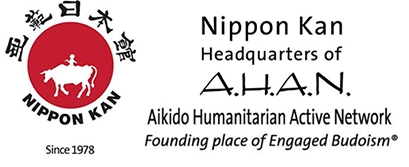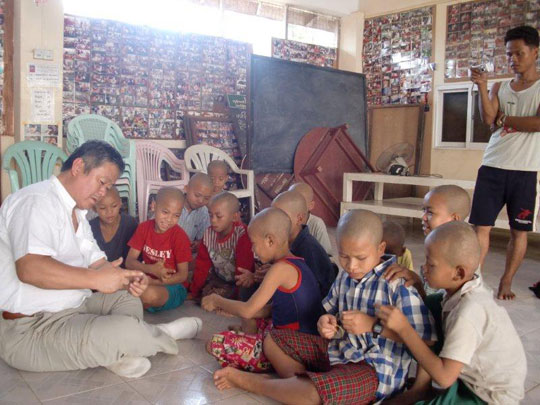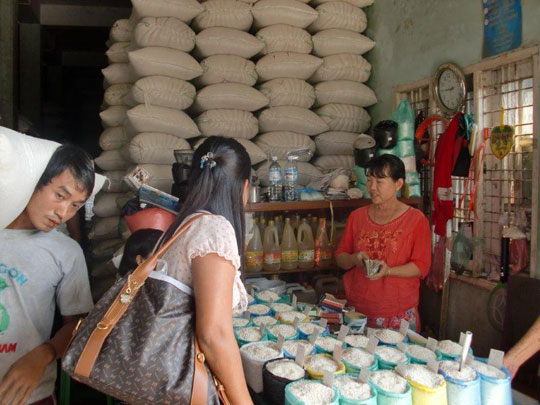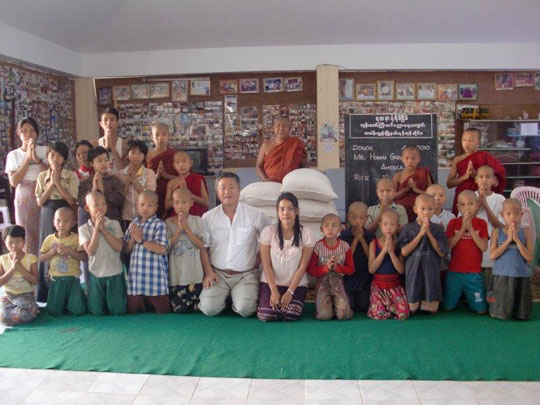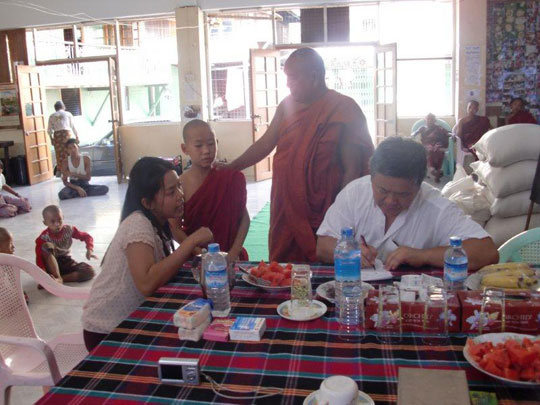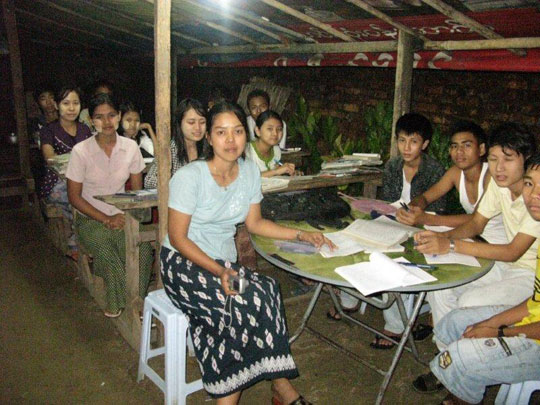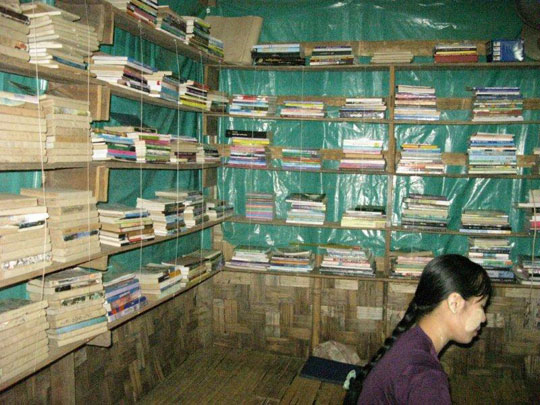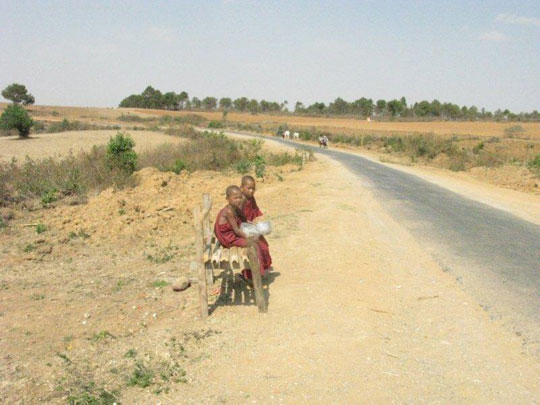March 4-9th, 2010
Homma Kancho came to visit us in Myanmar this March 2010. Below is my report of this visit.
Nilar Than
Myanmar AHAN Coordinator
Visit to Yadanapon Orphanage
Our first stop was at Yadanapon Orphanage, which has been a focus for AHAN since the spring of 2009. On this visit we delivered AHAN’s monthly rice donation and also delivered medical supplies.
12 year old Sein Han, who became the focus of Homma Sensei’s attention last year with his well worn pair of sandals, was there to greet us. Sein Han is an orphaned boy from the Shan (Chaw) state in Myanmar who calls the Yadanapon Temple his home. We discovered on this visit that Sein had recently formally began his priest training and was wearing the robes of an apprentice monk-in-training. We have plans in the future to make a picture book chronicling Sein Han’s life as a young Buddhist monk in Myanmar.
Link here to read the story of our first meeting with Sein Han
- Rice delivery at the Yadanapon orphanage. Our visit coincided with spring break. Many of the children were out visiting extended relatives.
- Interview with Sein.
Making Plans for the NEW AHAN Learning Center in Yangon
The Myanmar AHAN contact office is in my home outside of Yangon. For the past few years, middle and high school students in the area have also come to m home as a place to study. My mother and both my older and younger sisters are certified public school teachers and my father used to be an English teacher, so my home is a natural place for learning.
Up until now, an average of 30 students has gathered to study in at my home in a class room covered by tarps that barely keep out the rain. During the rainy season, the water line inside the class room rises to above my knee and everyone has to retreat to the second floor to stay dry.
With help from AHAN, we are planning to move the classroom to a better (and dryer) location, complete with five new computers and books in both English and Japanese donated by Nippon Kan General Headquarters.
Homma Sensei commented on this first visit to my family home, “The young people in Myanmar are sincere in their eagerness and motivation to learn. Your class room brings back memories of Japan when I was young, where there were also not enough books or school supplies for students to learn from. Short on books, there was still a great eagerness to learn, and students were educated one-on-one by teachers with too few resources but a great passion for teaching. Myanmar today reminds me of those days. AHAN’s resources are small but we will offer what support we can to kindle the spirit here. I believe together a lot can be accomplished”.
Research in Agricultural Development: Changing Poppy Fields to Buckwheat Fields.
Myanmar has had good success with a program that helps farmers transform poppy fields (formerly used to make heroin) into fields that grow buckwheat. Buckwheat can be harvested and made into flour and liquors, both of which have a good market in Japan. Buckwheat flour can be made into biscuits and noodles which also are very popular in Japan. This program for growing buckwheat in Myanmar began in 1996 as a joint project between Myanmar and Japanese governments.
For more details on this on-going program link here to article (Japanese).
After visiting some of the sites where buckwheat is being grown successfully in Myanmar, Homma Sensei hopes that someday this type of agricultural development might be used in areas of Mindanao to help the very depressed local communities there with a new source of income and productivity. With Myanmar project managers, Homma Sensei discussed ways to introduce these types of agricultural programs into the Philippines not only logistically but how to integrate them socially and culturally as well. Specifically they discussed not only how to introduce this program for growing buckwheat but also how to connect them into distribution and sales networks that would make the programs sustainable.
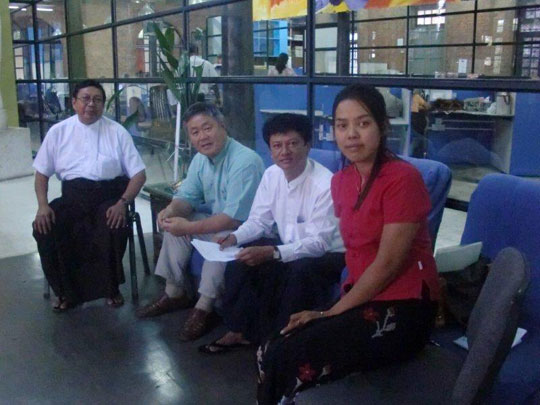
A visit to the Myanmar Times English newspaper headquarters. Second from the front, Agriculture reporter Mr. Myo Lwin. Behind (last); my father; Senior Editor Than Aung.
Written by
Nilar Than
Myanmar AHAN Coordinator
